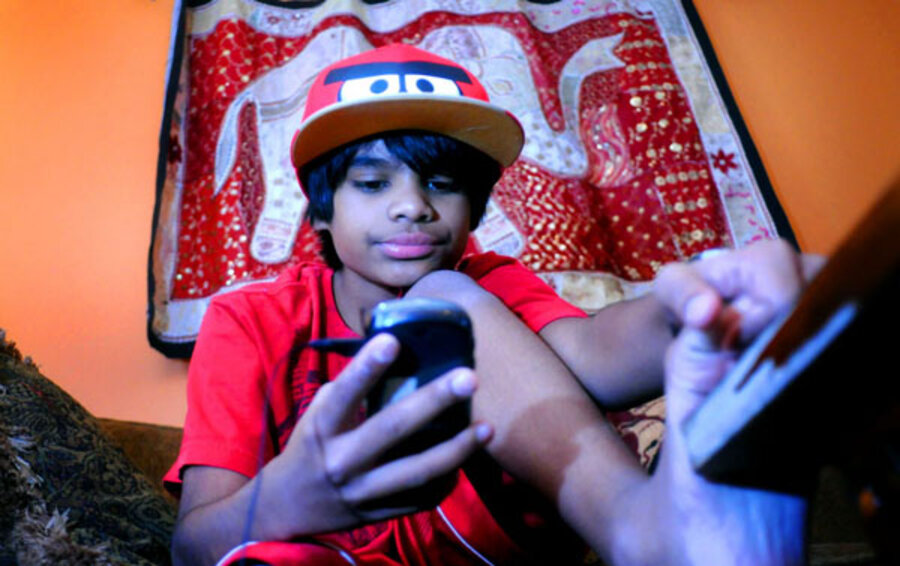Cell phone babysitting: NY teens pay valets for cell phone daycare
Loading...
| NEW YORK
Thousands of teenagers who can't take their cellphones to school have another option, courtesy of a burgeoning industry of sorts in always-enterprising New York City: paying a dollar a day to leave it in a truck that's parked nearby.
Students might resent an expense that adds up to as much as $180 a year, but even so, leaving a phone at one of the trucks in the morning and then picking it up at the end of the day has become as routine for city teenagers as getting dressed and riding the morning-rush subway.
"Sometimes it's a hassle because not everyone can afford it," said Kelice Charles, a freshman at Gramercy Arts High School in Manhattan. "But then again, it's a living."
Cellphones and other devices, such as iPods and iPads, are banned in all New York City public schools, but the rule is widely ignored except in the 88 buildings that have metal detectors. Administrators at schools without detectors tell students, "If we don't see it, we don't know about it."
Schools where violence is considered a risk have metal detectors to spot weapons, but they also spot phones. They include the Washington Irving Educational Complex in the bustling Union Square area, a cluster of small high schools housed in a massive century-old building that used to be one big high school.
The trucks that collect the cellphones have their own safety issues — one was held up in the Bronx in June, and some 200 students lost their phones. That could be why one operator near Washington Irving refused to speak to a reporter recently.
A converted disability-access van that's parked a block away on school days is painted bright blue and labeled "Pure Loyalty Electronic Device Storage." The owner is Vernon Alcoser, 40, who operates trucks in three of the city's five boroughs.
Mr. Alcoser would not comment, even though the names of news outlets that have run stories about Pure Loyalty are affixed to his trucks. Pure Loyalty employees chatted but would not give their names as students from the Washington Irving complex lined up on a drizzly morning to surrender their phones.
"Next, next, have the phone off, have the money out," an employee yelled as the teens texted and listened to music until the last possible second. At the truck window, each student exchanged a phone and a dollar for a numbered yellow ticket.
"It's not that much of a hassle unless it's really crowded," said Gramercy Arts sophomore Chelsea Clouden.
"My whole four years I've been putting my phone in this truck, and it's been great," said Melquan Thompson, a senior at the High School for Language and Diplomacy. "Only a dollar. It's not bad."
The cellphone trucks appear to be unique to New York City.
"That is hilarious," said Debora Carrera, a high school principal in Philadelphia who had never heard of a phone storage truck. "Wow. It is very strange."
At Carrera's school, Kensington Creative and Performing Arts High School, students operate a cell phone storage room where phones can be dropped off in the morning at no charge and picked up after school.
For many teens, it would be unthinkable to leave the devices at home all day, Carrera said. "Their phone is like a family member," she said. "It's like a pet. They love it."
For parents, the phone may be the only way of communicating with a teen who commutes two hours to school and gets home at 8 p.m., after sports practice.
"In this day and age, it's ridiculous that the Department of Education doesn't allow us to store them on site," said Robin Klueber, the PTA president at Frank McCourt High School on Manhattan's Upper West Side.
Frank McCourt, named for the late writer and teacher, shares a metal-detector building with several other schools. Some students store their phones in a truck, and others use a nearby shoe store, Ms. Klueber said. She wishes the city Department of Education would let the PTA run a storage room instead.
"In this day and age, especially when many of us still feel the scare of 9/11, students should be able to travel with their phones," Klueber said. "Many of these kids come from other boroughs and participate in after-school activities where they are far from home late into the evening."
The Department of Education did not comment on whether lockboxes in schools were being considered. Spokeswoman Marge Feinberg said only, "We have a longstanding policy that does not allow students to use cellphones in schools. It is in Chancellor's Regulation A-412, and there are no plans to change this."







